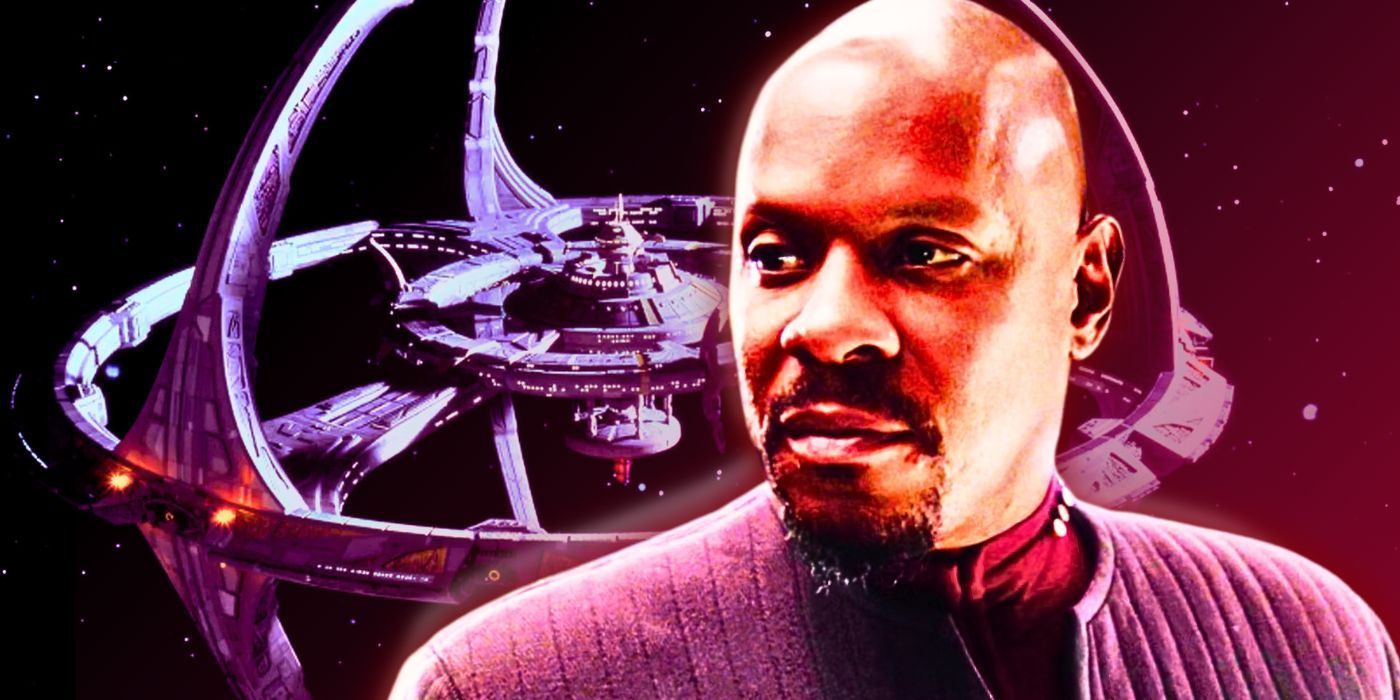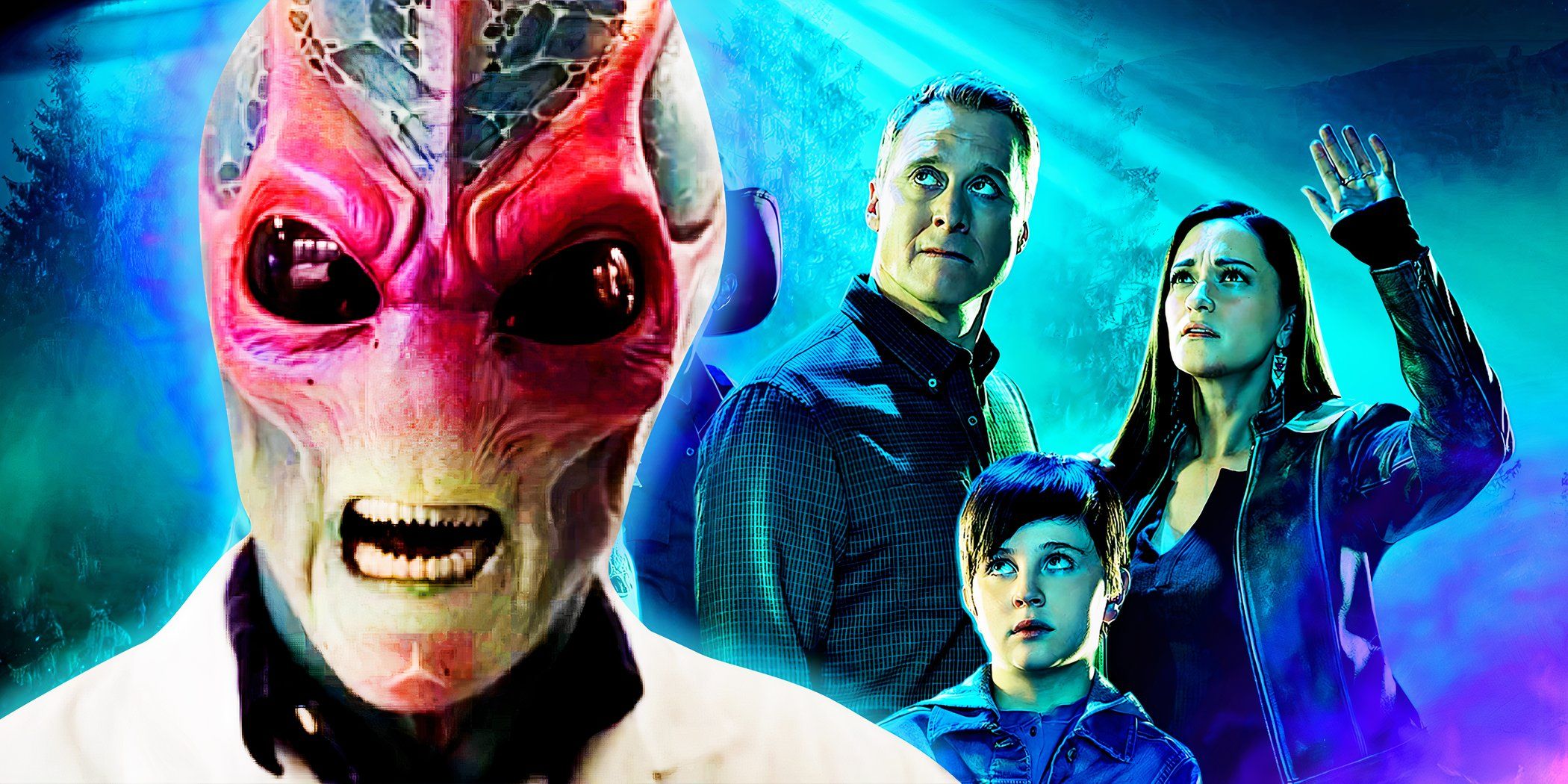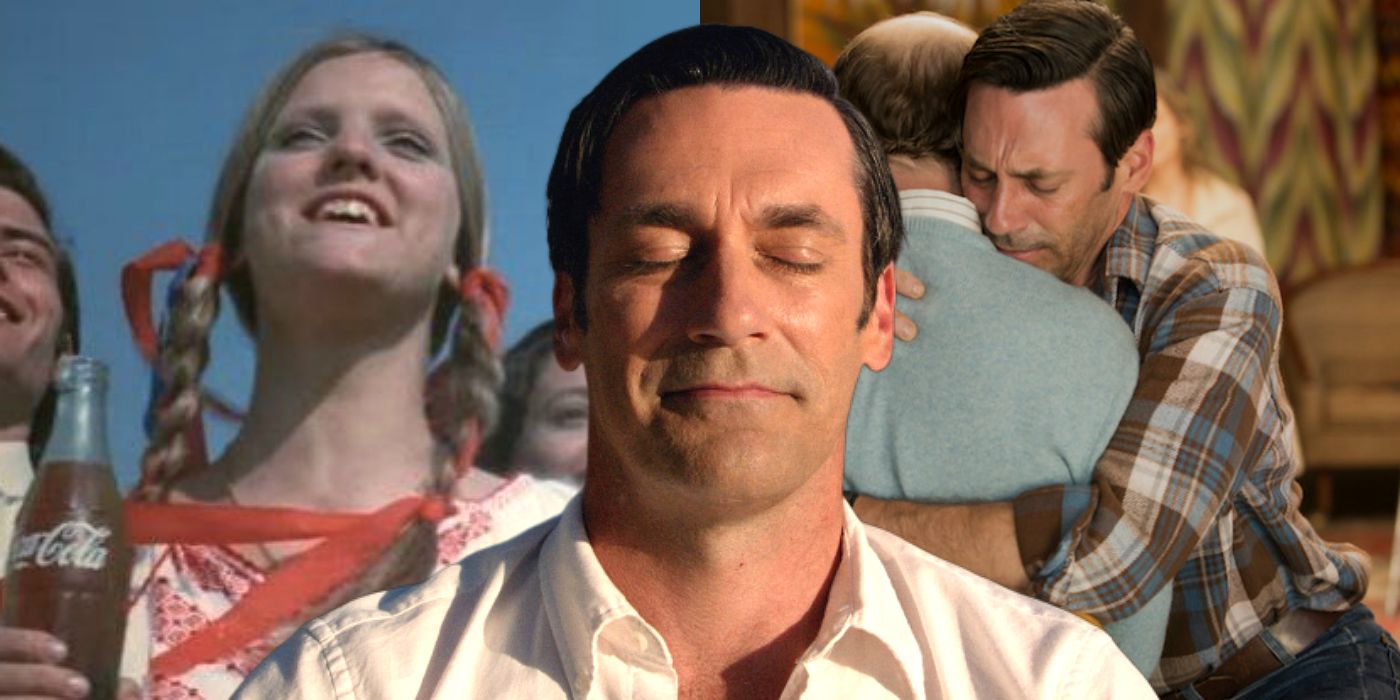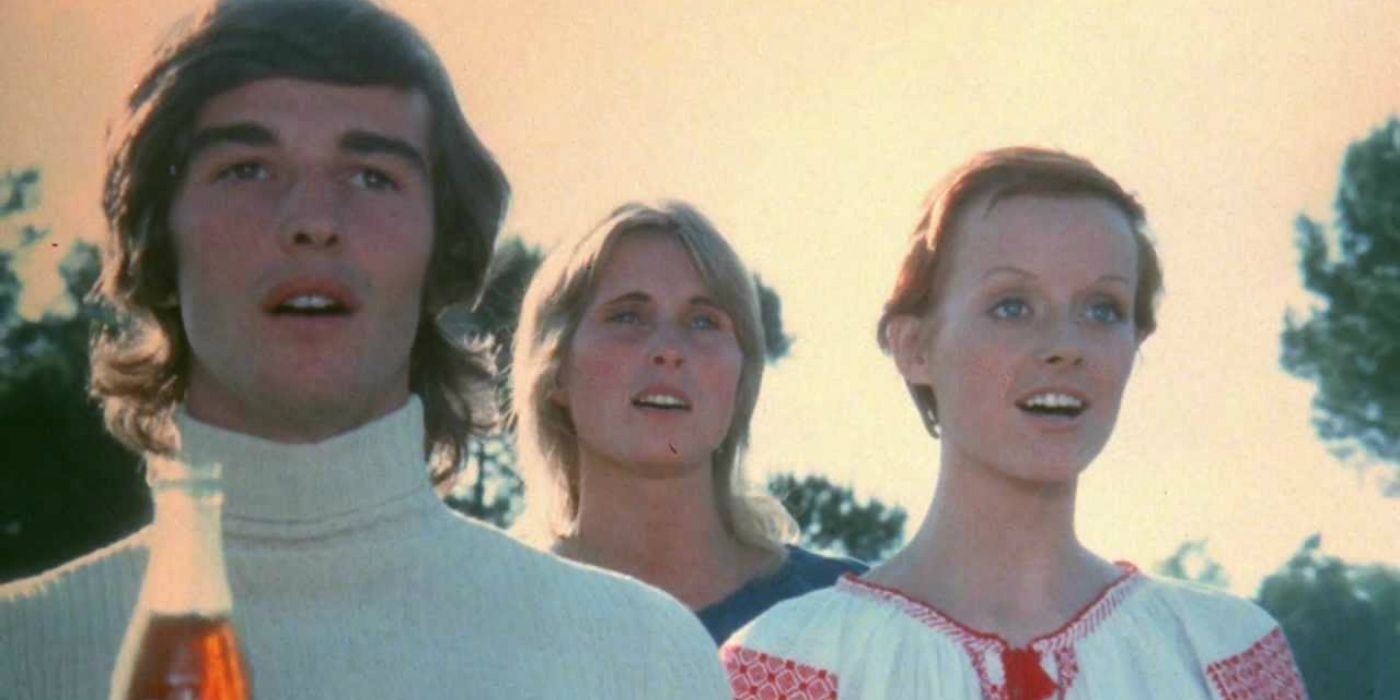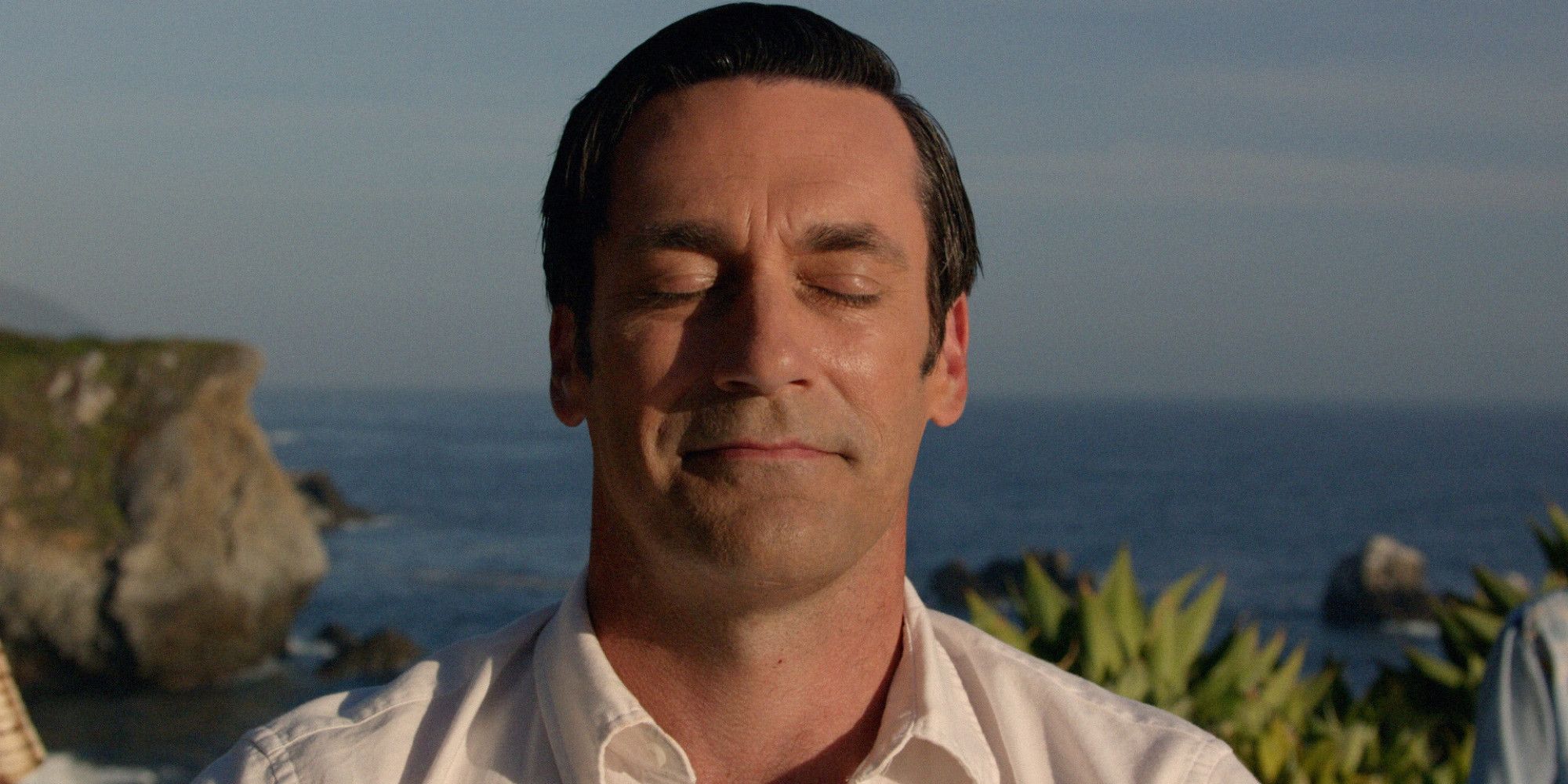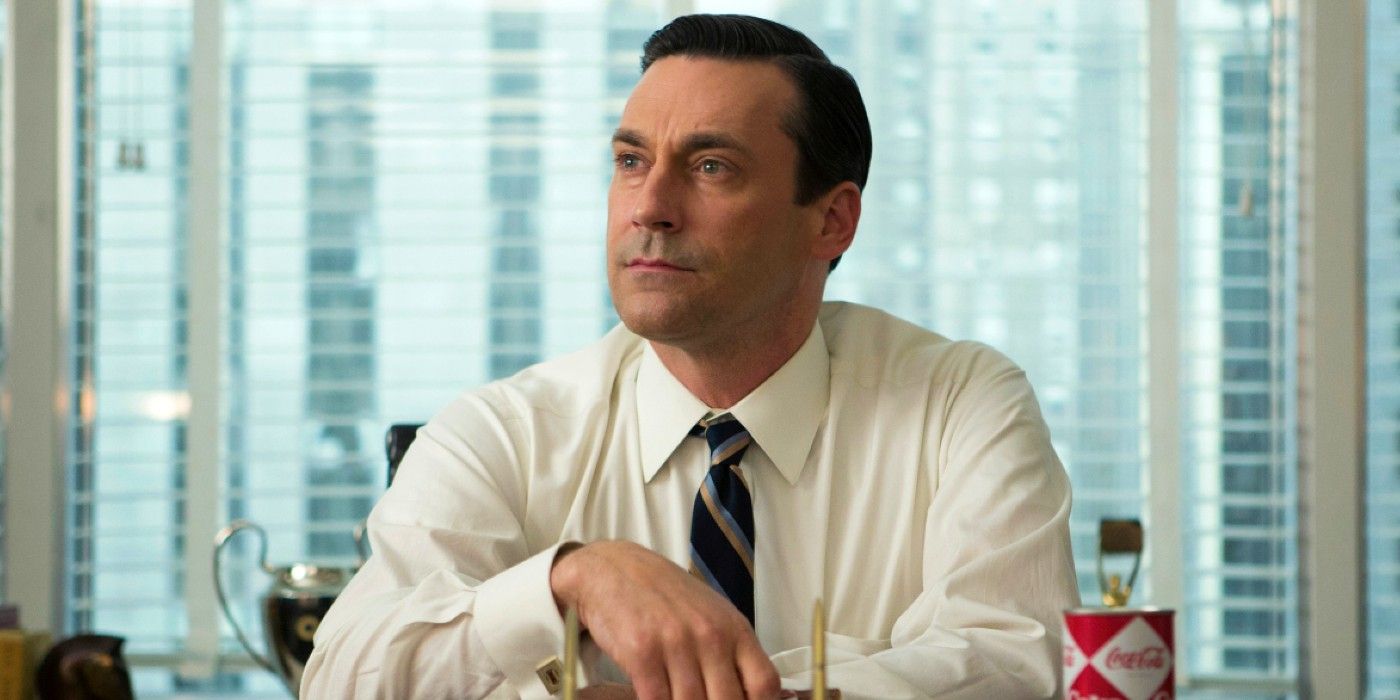Summary
- Don Draper's true transformation is left open-ended in the finale, hinting at inner peace but also potential regression.
- Mad Men's finale wraps up major character arcs with a mix of happiness and bittersweet endings, focusing on Don's journey the most.
- The ambiguous conclusion suggests Don may have created the Coke ad, emphasizing hope and change in a cynical or enlightened light.
Mad Men's ending is one of TV's most-discussed series finales, bringing the story of Don Draper (Jon Hamm) to an ambiguous and unexpected conclusion. Debuting back in 2007, Mad Men - created by Matthew Weiner (The Sopranos) - took place primarily in the 1960s, focusing on the advertising people working on New York's Madison Avenue. Running for seven seasons, Mad Men came to an end in 2015 with its reputation as one of the best shows of the 21st century still intact and a finale that earned acclaim and plenty of talk.
Mad Men always showed the complicated nature of a character like Don Draper, daring the audience to like him even when he made it very difficult. Mad Men's finale put Don on a path to change for the better while also leaving the question open of whether he was capable of change. This led to the show's famous final moments that seem to clarify his journey while also hinting at his future. However, the ending is left fairly ambiguous, making it necessary to explore Mad Men's finale in more detail.
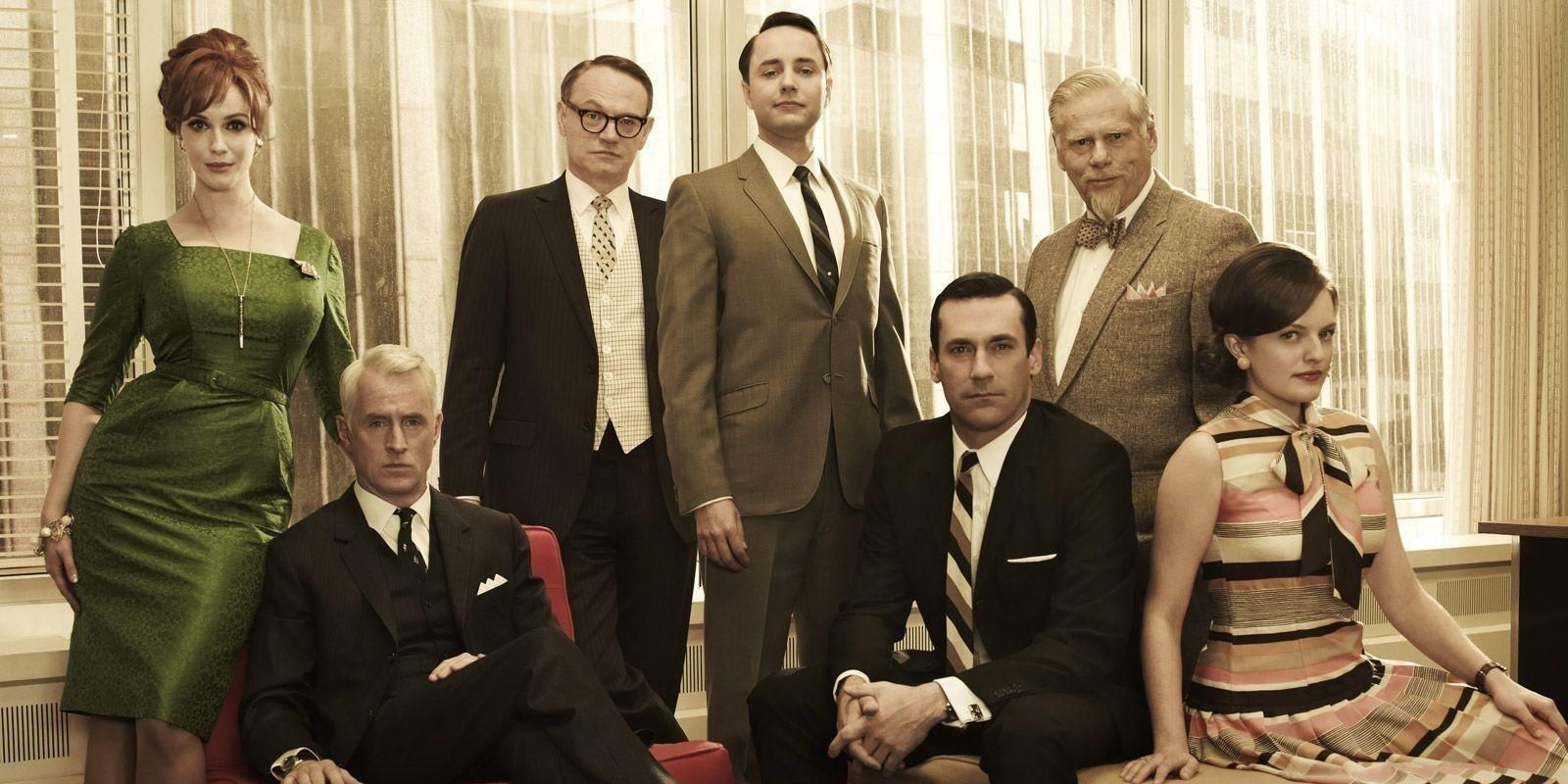
10 Harsh Realities Of Rewatching Mad Men, 16 Years Later
Sixteen years later, Mad Men is still iconic, but rewatching reveals some elements that haven't aged well & of which audiences should be critical.
How Mad Men's Series Finale Ends
Don's Journey Comes To An End With A New Idea
In "Person To Person," the series finale of Mad Men, Don goes to a retreat in California, to find some kind of enlightenment after all the pain and suffering his lies have caused not only himself but just about everyone he’s ever come into contact with. Elsewhere, Mad Men’s ending attempts to give relatively happy conclusions for most of the other Mad Men characters.
There are happy and satisfying endings for the main remaining characters, as well as some bittersweet endings. Peggy stays at McCann Erickson where she and her coworker Stan confess their love for each other and start a relationship. Joan starts her own production company, juggling being a single mother and a career woman despite what people think. Roger is happily married to Marie, enjoying their wealth and shared interest in drinking. Most tragic of all, Betty is revealed to be dying of cancer, choosing to die on her own terms, which leaves Sally stepping up to take more responsibility.
However, Don is the main focus of the final episode with him having phone conversations with Betty and Peggy to bring closure to his relationships with these women. The finale ends with Don searching for his inner peace at the meditation retreat. As Don participates in a meditation exercise, the camera slowly moves in on his face as he smiles satisfyingly. The episode then cuts to the real-life Coca-Cola "Hilltop" advert from 1971 as the credits begin to roll.
Did Don Draper Find Inner Peace?
The Coke Ad Puts Don's Transformation Into Question
Throughout the entire run of Mad Men, Don Draper was a troubled soul. Running from his past as Dick Whitman, Don constantly turned to women and alcohol in order to either make himself feel better, to find what he was missing, and to experience fleeting moments of joy. He married a couple of times, but Don could never be truly happy with anyone else until he learned to be truly accepting of who he is.
Don’s retreat was centered around him finding not just a sense of purpose, but an idea of who he really is and being happy with that. While Don's smile as he mediates begins to suggest he has begun to find that inner peace, the cut to the Coke advert suggests otherwise. It hints that Don instead simply went back to being Don and doing the one thing he was always good at. That he hadn’t really changed all that much.
[T]he retreat does seem to change Don as his reaction to hearing fellow retreat guest Leonard's story has a profound effect on him.
However, the retreat does seem to change Don as his reaction to hearing fellow retreat guest Leonard's story has a profound effect on him. Hearing Leonard’s story of feeling overlooked and unloved causes Don to break down crying, recognizing himself in those words. That’s a rare and huge moment of self-reflection for Don and is what leads him to the group mediation and that smile on his face. He might’ve gone back to New York and created the advert, but he’s also not the same Don Draper who left it behind.
Did Don Draper Create The Coke Advert?
Clues To Don's Time At The Retreat Relate To The Commercial
When the camera zooms in on Don Draper’s smiling face in the Mad Men series finale's final moment, the meditation bell rings just as the episode transitions to the “I Want To Buy The World A Coke" advert. It suggests that Don came up with the idea for this famous commercial and it is not hard to draw that conclusion as there are numerous similarities to the commune Don is at, which are without a doubt deliberate.
The clothes are the same, the people look similar, it’s at a place called the Hilltop, and even the idea of having a Coke is related to something Leonard said, describing himself as an item in a refrigerator that no one ever selects. Previously, Peggy had encouraged Don to come back and work on the Coke ad only to choose to stay at the retreat. However, it seems the retreat played into this idea, especially since the company they're working for - McCann Erickson - did create the Coke ad in real life, with Bill Backer as the man behind it.
Having worked on The Sopranos, however, Matthew Weiner knows the power of an ambiguous ending. He’s strongly hinted that Don did indeed create the Coke advert, telling TVLine just after the finale aired: "The idea that some enlightened state, and not just co-option, might’ve created something that is very pure." It’s nonetheless left open to interpretation within the text itself though.
How Mad Men Gave Don The Perfect Ending
Was Don's Commercial Idea Cynical Or Enlightened?
Mad Men is a show about both advertising and the changing nature of America through the 1960s, making Coca-Cola's "Hilltop" advert a perfect culmination of these themes. It's one of the most famous ads ever made, but also linked to the ending of the decade and, somewhat more cynically, how big corporations began to cash-in on counter-culture. There is a way to read the ending as Don uses this supposedly enlightening experience, including Leonard's speech, to grow his career.
Mad Men delivers a finale that is about hope, both real and manufactured.
However, it is possible to read Mad Men's ending as far less cynical. As Matthew Weiner suggested, the final moments and Don himself buy into the earnestness of the Coke advert. It is linked to the change Don undergoes in the final season. Mad Men delivers a finale that is about hope, both real and manufactured. In the endings of almost all the major characters, hope is a recurring element. It's surprisingly sweet for the show, yet it underlines one of its central facets: change.
By finding a sense of enlightenment, he's able to create the Coca-Cola advert. In doing so, Don's also able to reach out, help others, and finally even help himself. He is able, at last, to make genuine human connections, and to create something that has a real impact too. Don is great at advertising, but now he's finally found a way to make that not seem so empty. In Mad Men's ending, Don not only creates an all-time great advert, but most importantly, he's able to change.
Will Mad Men Ever Continue?
Jon Hamm Commented On A Possible Reboot
While the Mad Men finale brought Don Draper's story to a satisfying conclusion, it doesn't close the door to more stories being able to be told. As with most popular shows that come to an end these days, there have been questions about whether there could ever be more Mad Men to come in the future. Kiernan Shipka, has discussed the possibility of continuing on, saying,
I’m not done with Sally. I don’t think she’d be in New York. I think she’d do L.A… But I’m not done with her at all.
Shipka also added that she still sees her on-screen father, Jon Hamm, often and loves running into him. When asked about a possible Mad Men reboot, Hamm himself suggested it was possible but approached the subject with caution:
I mean, I was so very happy, as many people were, and I think Matt was as well, with how satisfying the ending was for Don, that I think to revisit that might be—I don't know... might be too much. I'm not sure but we don't really talk about it. It's not that it's off limits, but it never comes up. We have families and other things to talk about. So you know, I'm a big believer in never say never, but if it comes up, you know, it would be—there's a lot of ways to do that. I can't really confirm or deny it.
While there are many who would love to see where Don's career led him past the Coke ad, Hamm is likely right that the ending should be left alone. While it is not a definitive ending for Don, the Mad Men finale brings his story to a conclusion that is fitting, clever, and suggests there is not anything more that needs to be said. KContinuing the show would likely only see a repetition of the story, or worse, undo what was done with the character in the end. Should Mad Men continue, a spinoff set in this world would be better as it would allow Don and his story to be left untouched.
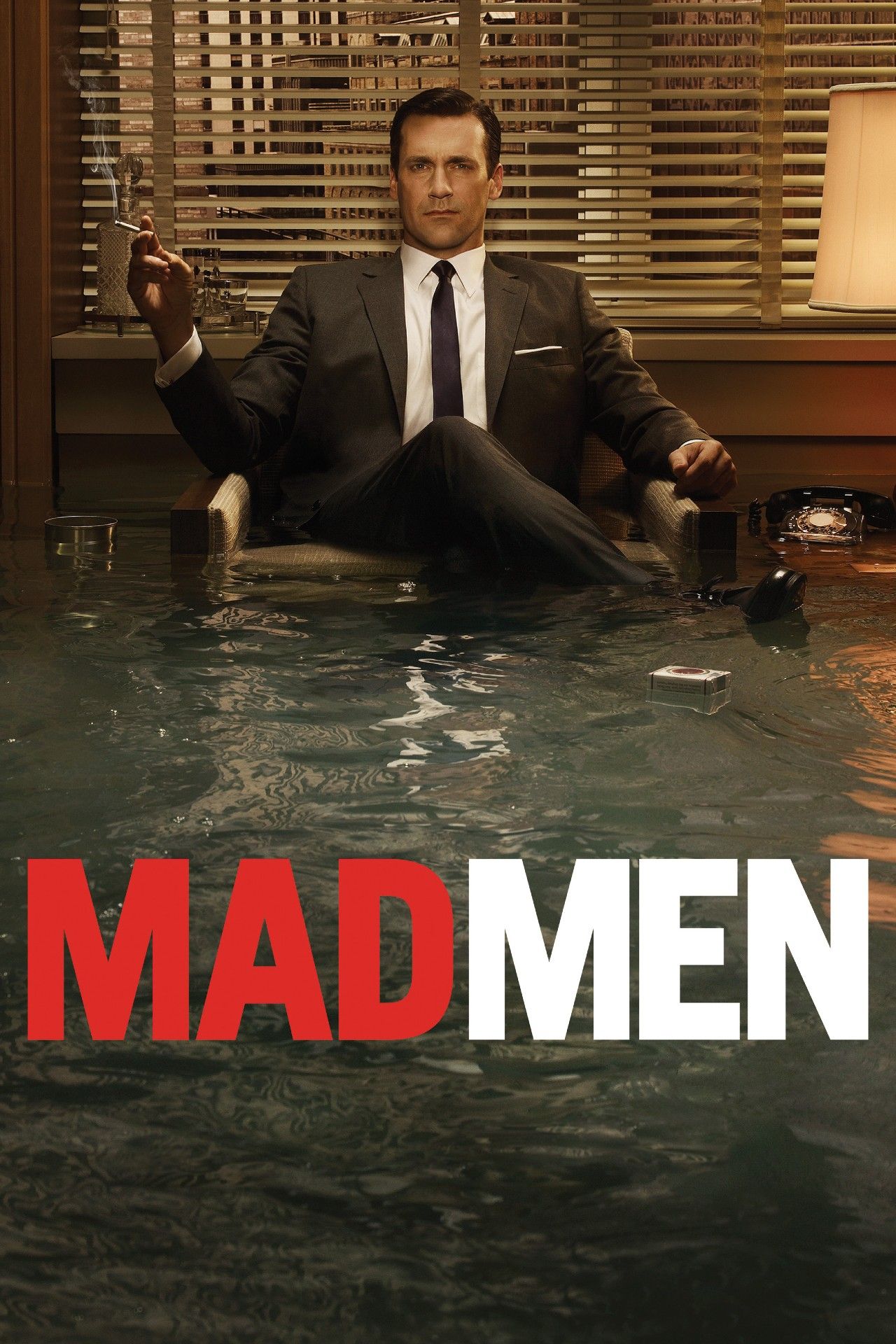
Mad Men
Mad Men is the award-winning show created by Matthew Wiener that stars Jon Hamm as Don Draper, a masterful ad man in the high-speed advertising world. Set between the 1960s and 70s; Mad Men explores this "Golden Age" of advertising, where everyone has something to sell, and those who don't score a quick win are out of the game. The series also examines the world from a few other character's perspectives, such as Peggy Olson (Elisabeth Moss), a young woman who starts as a secretary for Don despite the difficulty for women to be taken seriously in business during this time, rises to the challenge to become an ad woman of her own.
- Cast
- Jon Hamm , Elisabeth Moss , Vincent Kartheiser , January Jones , Christina Hendricks , Bryan Batt , Aaron Staton , Rich Sommer
- Release Date
- July 19, 2007
- Seasons
- 7
- Streaming Service(s)
- AMC Plus



